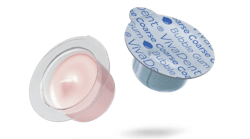Does sugar-free mean good for your teeth?
(Boston) — Does sugar-free mean good for your teeth? Not necessarily.
In a literature review out today in the British Dental Journal, researchers say there is an “unrecognized risk of acidic flavoring in sugar-free candies and beverages.” Those with acidic additives — usually fruit-flavored sugar-free products — still pose a high risk for dental erosion.
“The term sugar-free may generate false security because people may automatically believe that sugar-free products are safe on teeth,” says Dr. Sok-Ja Janket, associate research professor at Boston University Henry M. Goldman School of Dental Medicine (GSDM) and lead researcher on the project.
Xylitol, a sugar substitute popular in the UK, has proved to reduce tooth decay and is approved by both the U.S .Food and Drug Administration and the European Union for this use. Sorbitol, the sugar substitute common in the U.S. because of its lower cost, helps reduce cavities, but not as well. When sugar substitutes are used with acidic additives, though, no food or drink can be considered “tooth friendly.”
“As the use of sorbitol- and xylitol-containing products increases, the public should be educated on the hidden risk of dental erosion due to acidic additives,” Janket says.
This risk increases the longer the acid stays on teeth. A candy that melts slowly in the mouth, for example, may cause more harm than an acidic beverage.
Researchers also warn that sugar-free does not mean calorie-free, and that some sugar-free candies and beverages have up to 50% of the calories of full sugared counterparts.
“We believe there are healthy, nonacidic, sugar-free candies available,” Janket says. “Mint chocolate or butterscotch flavors seem safe, but until we conduct research measuring pH changes caused by these sugar-free products, we should defer any specific recommendation.”
The review was conducted by Dr. Janket and Hadi Nadimi, from GSDM; Dr. Helena Wesamaa, Institute of Dentistry, University of Helsinki; Dr. Prashanti Bollu, College of Dental Medicine, University of Southern Nevada; and Dr. Jukka H. Meurman, also of the University of Helsinki and Helsinki University Central Hospital.
The current article is largely based on Nadimi’s master's thesis in Boston University’s Division of Graduate Medical Sciences, for which Dr. Janket mentored him.
Previously, Dr. Bollu also worked with Dr. Janket as a student at GSDM.

